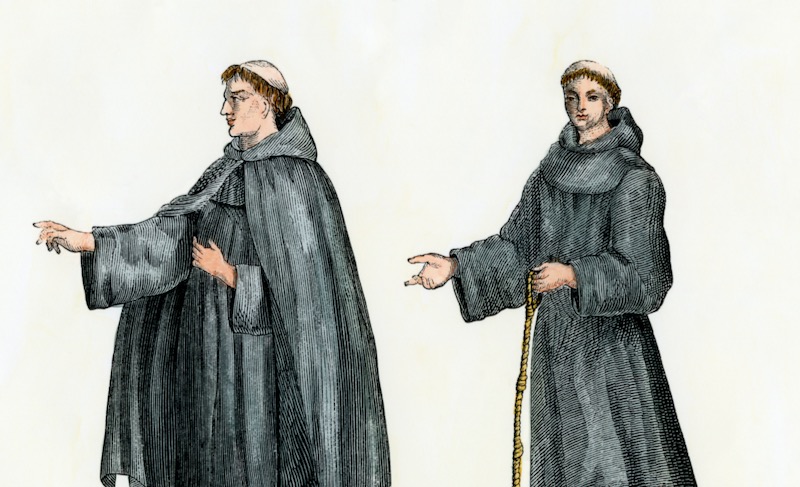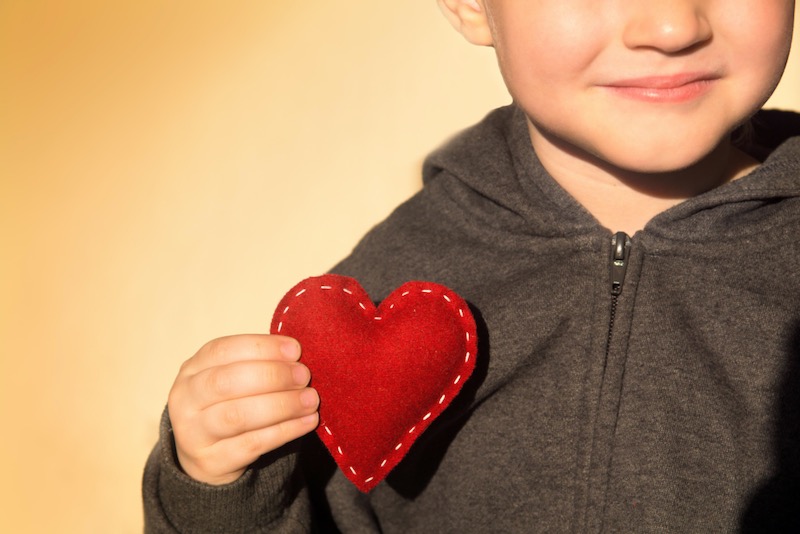It could reasonably be assumed that people would be less likely to be depressed as we enter the springtime. In fact the opposite is true. It is believed, based on research, that the incidence of suicide is greater in the spring and early summer than in the winter; and April is described by T.S. Eliot in The Waste Land as “the cruellest month”. The exact reasons for this are unclear but what is known is that people go into a sort of emotional hibernation during the winter, and then face a renewed pressure to “be well” as new life springs up all around. Maybe the gap between the outer and inner realities is too much to bear for some.
A recent new study discovered something that has deep roots in Catholic Social Teaching and in the scriptures.
Research at Ohio State University focussed on 122 adults with moderate or severe depression and the results were published in The Journal of Positive Psychology in January, a time when many of us are prone to feeling the post-Christmas and the mid-winter blues. Indeed 16 January was designated as Blue Monday. It’s the Monday of the third week in January and was declared in 2005 by one travel company to be the day in the year when people are most likely to be depressed. The Samaritans have marked the day by giving out teabags at train stations, the message being that it’s good to talk. We know in our work at the Irish Chaplaincy that it’s also that little act of kindness that can be transformative; and in the case of people in prison, who might be in particular despair, an act of kindness can be life-saving.
What this new study concludes is that the person giving the act of kindness is also helped. The participants were split into three groups. One group was required to carry out kind acts for others twice a week for ten weeks; a second group participated in planned social activities; and the third group were subject to a cognitive behaviour technique known as cognitive reappraisal. This involves the person being helped to recognise when their thoughts follow negative patterns and to make the thoughts more positive. As for the kind acts, they included things like baking biscuits for friends, offering lifts to people and writing notes of encouragement for housemates.
For those in the “kind acts” group there was a greater improvement in depressive symptoms than for those in the other two groups. Dr David Gregg who led the study concluded, “Something as simple as helping other people can go above and beyond other treatments in helping people deal with depression and anxiety.” His colleague, Dr Jennifer Cheavers added, “We often think that people with depression have enough to deal with, so we don’t want to burden them by asking them to help others. But these results run counter to that. Doing nice things for people and focussing on the needs of others may actually help people with depression and anxiety feel better about themselves.”
They had measured the impact on depression by use of Cohen’s d. This is a statistical term with a value of 0.2 having a small effect, 0.5 a medium effect, and 0.8 a large effect. The score was 1.00 for acts of kindness, 0.92 for cognitive reappraisal, and 0.74 for social activities.
All of this would appear to confirm something I first discovered when, as a student, I used to visit a geriatric hospital near the campus. I loved spending time with the people there and noticed that I always felt better afterwards. I don’t know what effect my visits had on the elderly, some of whom had advanced dementia and might not even recognise me from one week to the next, but it certainly did me the power of good. Similarly, I remember a visit I made a few years ago to a hospital to see Ellen, a lovely 92-year-old Cork woman who was on her death bed. It was that “most depressed” period in the middle of January and I had been feeling distinctly out of sorts. She was barely conscious on what was to be the last time I saw her but I simply sat with her and sang some old Irish songs, including the one we always sang together when I used to visit her in her home, “Be Thou my Vision.” If I’d been measured afterwards by the Cohen’s d indicator I’m sure that my score would have doubled at least!
I was touched by the words of one of our seniors project volunteers Kristjana, who wrote, following her contact with Phyllis, “She thanks me numerous times each time I deliver the shop. But I don’t think she realises how grateful I am for her and the experiences. The opportunity to commit some time and to help my community in this way has been a humbling and lovely experience."
I can imagine Kristjana thinking, as I did when coming away from my visits to the geriatric hospital, that she had surely received far more than she ever could have given. The reality, I suppose, could be summed up in the words of Portia in The Merchant of Venice spoken about mercy but equally applicable to kindness, “It is twice blessed; it blesseth the person that gives, and the person that receives.”
All of this is firmly rooted in Catholic Social Teaching, whose four key principles of human dignity, solidarity, subsidiarity and the common good are said by the Compendium of the Social Doctrine of the Church to have at their heart, among other qualities, “reciprocity and interconnectedness”.
Kindness is listed specifically in Galatians 5:22-23 as one of the gifts of the spirit. And the words of Jesus, recorded in Luke 6:37-38, implore us to: “Give, and there will be gifts for you: a full measure, pressed down, shaken together, and running over, will be poured into your lap; because the amount you measure out is the amount you will be given back.”
So let us be kind to one another; perhaps even more so at a time of the year that, paradoxically, will be more of a struggle than ever for some people. As the Ohio State University researchers discovered, we’ll be helping ourselves just as much as the person helped.



 Loading ...
Loading ...
What do you think?
You can post as a subscriber user ...
User comments (0)